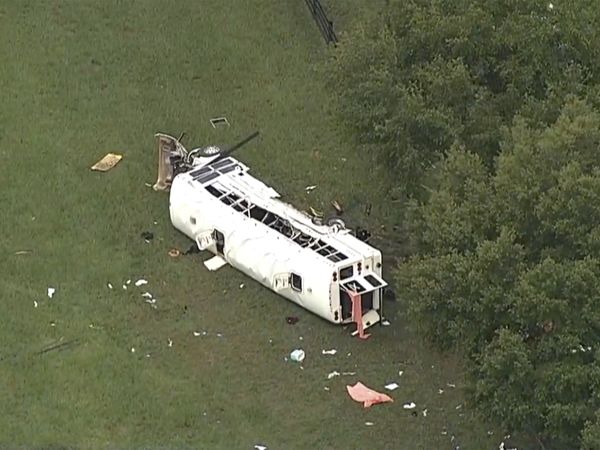The Australian foreign minister, Penny Wong, has said a “pathway out of the endless cycle of violence” in the Middle East can only come with recognition of “a Palestinian state alongside the State of Israel”.
Some commentators have interpreted the speech as a hint that Australia could recognise Palestinian statehood in the near term, although Wong has clarified that the government has made no such decision.
So what did Wong actually say about a two-state solution, what was she silent about, and how does this fit in with what Australia’s allies are doing?
What did Wong say?
In a speech to the Australian National University national security conference on Tuesday, Wong made Australia’s immediate priorities clear: “our demand on all parties for an immediate humanitarian ceasefire, enabling the release of hostages, the protection of civilians, and safe and unimpeded humanitarian access”.
But Wong also called for work to build “the pathway to a peace that is enduring and just, because the simple truth is that a secure and prosperous future for both Israelis and Palestinians will only come with a two-state solution”.
Wong said the Netanyahu government’s “refusal to even engage on the question of a Palestinian state” had caused “widespread frustration”, and that was why the international community was “now considering the question of Palestinian statehood as a way of building momentum towards a two-state solution”.
Wong said the Australian government would call on “all parties to return to the table” and support efforts to advance a political process.
What caveats did Wong set out?
Wong was emphatic that the Australian government saw “no role for Hamas in a future Palestinian state”.
Wong also called for “a reformed Palestinian Authority” – the unpopular Fatah-dominated body that now has limited self-rule over parts of the Israeli occupied West Bank.
What was Wong silent on?
Wong did not give any hint of when Australia might be prepared to recognise a Palestinian state, and she certainly did not say Australia would do it alone. Australian governments have traditionally seen this as a final step of a negotiated outcome between the Israelis and Palestinians; she was silent on whether that was no longer the case.
On ABC Radio National on Wednesday morning, Sally Sara asked whether Australia was “ready and willing to recognise Palestine as a state”. Wong replied: “Look, we’ve made no such decision.” Wong said her speech was grounded in the view “that we can be a friend to Israel and friend to the Palestinians”.
Does this place Australia at odds with its allies?
No. The British foreign secretary, David Cameron, said in February that UK recognition of an independent state of Palestine, including in the United Nations, “can’t come at the start of the process, but it doesn’t have to be the very end of the process”. He reiterated that it was important to “give the Palestinian people a horizon towards a better future.”
In late January, Axios reported that the US secretary of state, Antony Blinken, had asked his department to present policy options on possible US and international recognition of a Palestinian state after the war in Gaza.
The report said options could include the US bilaterally recognising the state of Palestine or not using its veto to block the UN security council from admitting Palestine as a full UN member state. It is important to stress no formal decisions had been made to take these steps, only that they were under contemplation.
Spain, however, has said it will recognise the state of Palestine before July. The EU foreign affairs chief, Josep Borrell, said in January that the world might need to “impose a solution” and that Israel “cannot have the veto right to the self-determination of the Palestinian people”.
What has been the political reaction in Australia?
The Coalition’s foreign affairs spokesperson, Simon Birmingham, said any “fast-tracked” recognition of Palestinian statehood was “dangerous” because it sent a “signal to terrorists that you can get outcomes from the type of horrific actions that were undertaken on 7 October”.
But the leader of the Greens, Adam Bandt, said the government “should immediately recognise Palestine” as there was “no barrier to this happening right now”.
How have Palestinian groups responded?
The president of the Australia Palestine Advocacy Network, Nasser Mashni, said he welcomed Wong’s support for the recognition of Palestine, “but it’s only the beginning of the work Australia needs to do to contribute to the breaking of this 76-year history of Israeli violence against, and oppression of, Palestinians”.
How have Jewish groups responded?
The Zionist Federation of Australia’s president, Jeremy Leibler, said talk of recognition “in such close proximity to the 7 October attacks is entirely premature and will be seen as a reward for those attacks”.
The president of the Executive Council of Australian Jewry, Daniel Aghion, said Wong’s speech was “not the way to treat a friend and ally of Australia” and that the 7 October attack vindicated the Netanyahu government’s belief that Palestinians were not “serious about living in peace and coexistence”.
However, the Jewish Council of Australia – a relatively new group that seeks to give expression to the views of Jewish Australians who do not give unquestioning support to the policies of the Israeli government – said the speech was “a good step but actions speak louder than words”.
Sarah Schwartz, the council’s executive officer, said Australia “must do everything in its power to prevent Israel committing genocide” and that “any solution must ensure equality, freedom, justice and human rights for Palestinians and Israelis”.
The executive director of the New Israel Fund Australia, Michael Chaitow, said Wong’s speech set out “a commonsense framework for advancing the prospects for peace”.
“Recognition of a Palestinian state, undertaken alongside normalisation agreements between Israel and regional neighbours, including Saudi Arabia, must form the basis for a diplomatic solution to this ongoing conflict,” he said.







